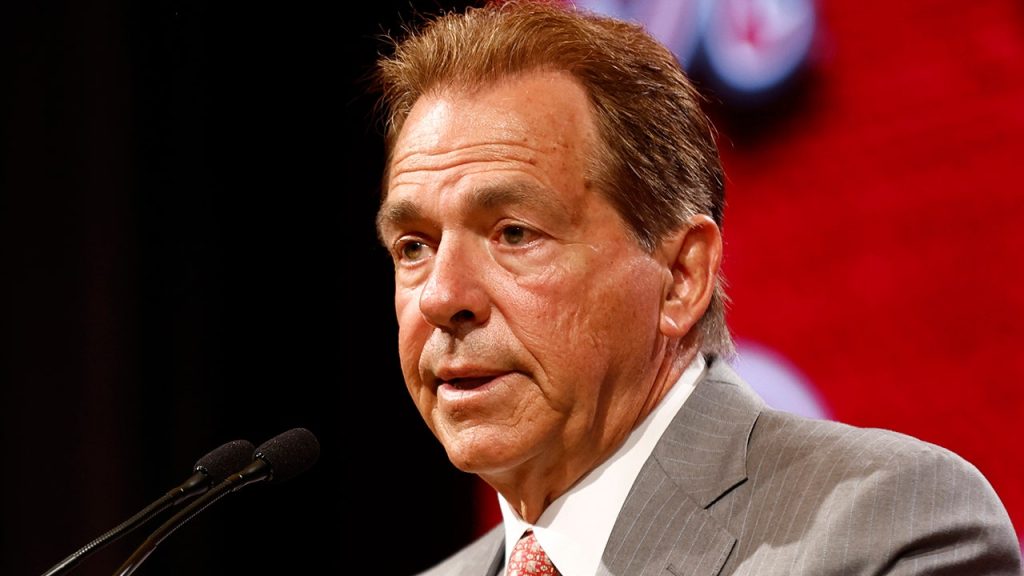Nick Saban, the seven-time college football national champion, recently stepped away from his role as head coach at Alabama. Shortly after his retirement, Kalen DeBoer was announced as his replacement. Saban will continue to be involved in the program in a supportive capacity, but will no longer have the full responsibilities of a head coach. He has also taken on a role as a panelist on ESPN’s “College GameDay.”
In a recent interview, Saban revealed that the biggest adjustment for him since retiring has been learning to slow down. After decades of living life in a hurry, constantly rushing from one meeting or event to the next, he is finally able to relax and take things at a more leisurely pace. Even when he was on vacation, Saban found it difficult to truly unplug and unwind. But now, he is starting to embrace his newfound downtime, even learning to text, read his emails, and pick up his own prescriptions.
Saban’s wife, Terry, shared that he is proud of himself for taking on these new tasks and responsibilities. Saban’s busy schedule and demanding career as a football coach left him with little time to focus on personal tasks or enjoy leisure activities. Now, he is able to appreciate the simple things in life and take pride in completing tasks that may have seemed trivial before. Saban’s transition from a high-pressure coaching career to a more relaxed lifestyle has been a significant adjustment for both him and his family.
Despite stepping away from the head coaching role, Saban’s legacy in the world of college football remains strong. His success at Alabama and previous coaching positions has solidified his reputation as one of the greatest coaches in the sport. Saban’s decision to retire has prompted reflection on his impactful career and the lasting impact he has had on the teams and players he coached. While his coaching days may be behind him, Saban’s influence on college football will continue to be felt for years to come.
As Saban settles into his new role as a retired coach, he is navigating the challenges of adjusting to a slower pace of life. While he may no longer have the same level of intensity and pressure that came with being a head coach, Saban is finding ways to stay busy and engaged. From his new role as a panelist on ESPN to learning new tasks like sending emails and picking up prescriptions, Saban is embracing the opportunities that come with his retirement. His ability to adapt to this new chapter in his life showcases his resilience and commitment to personal growth.















